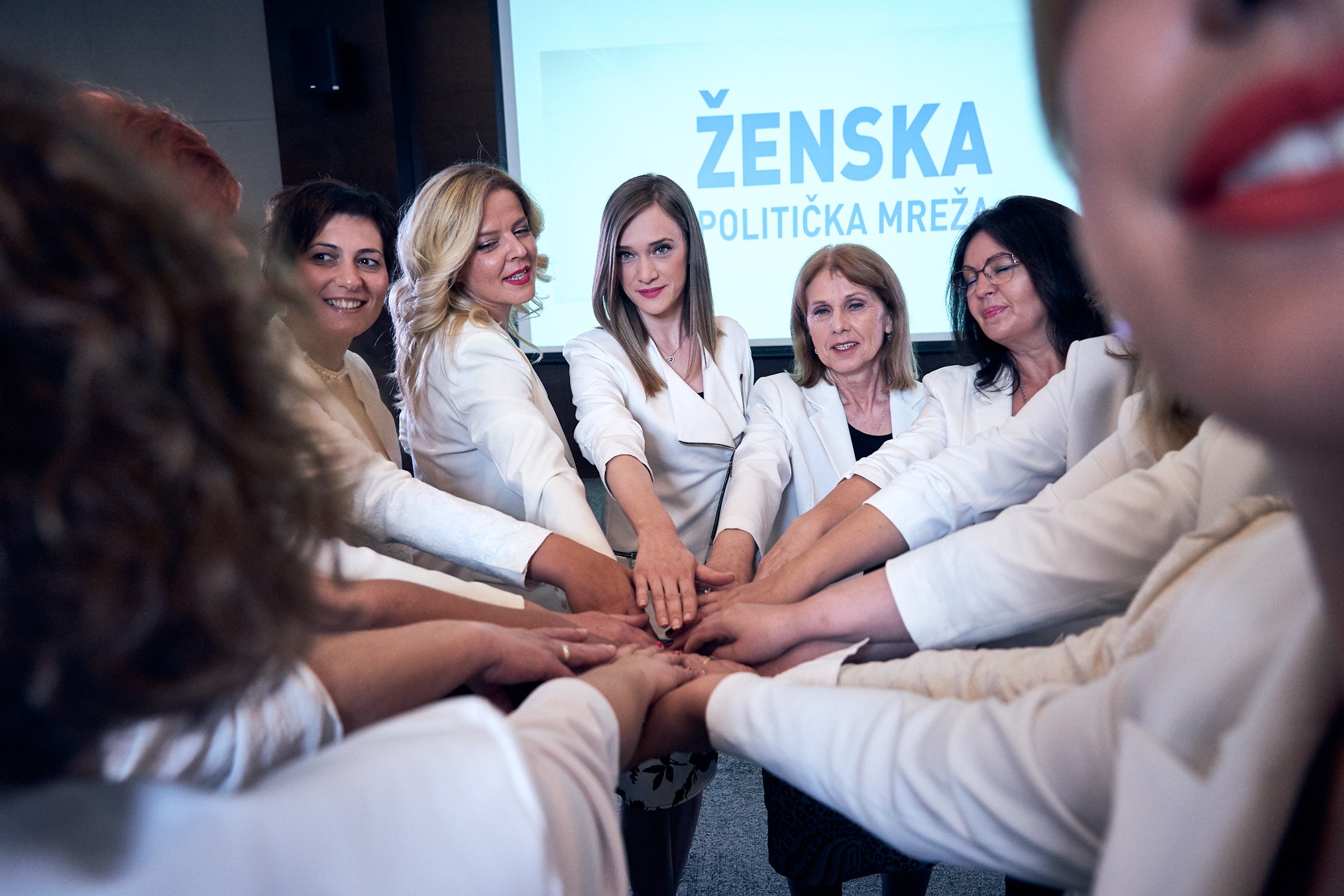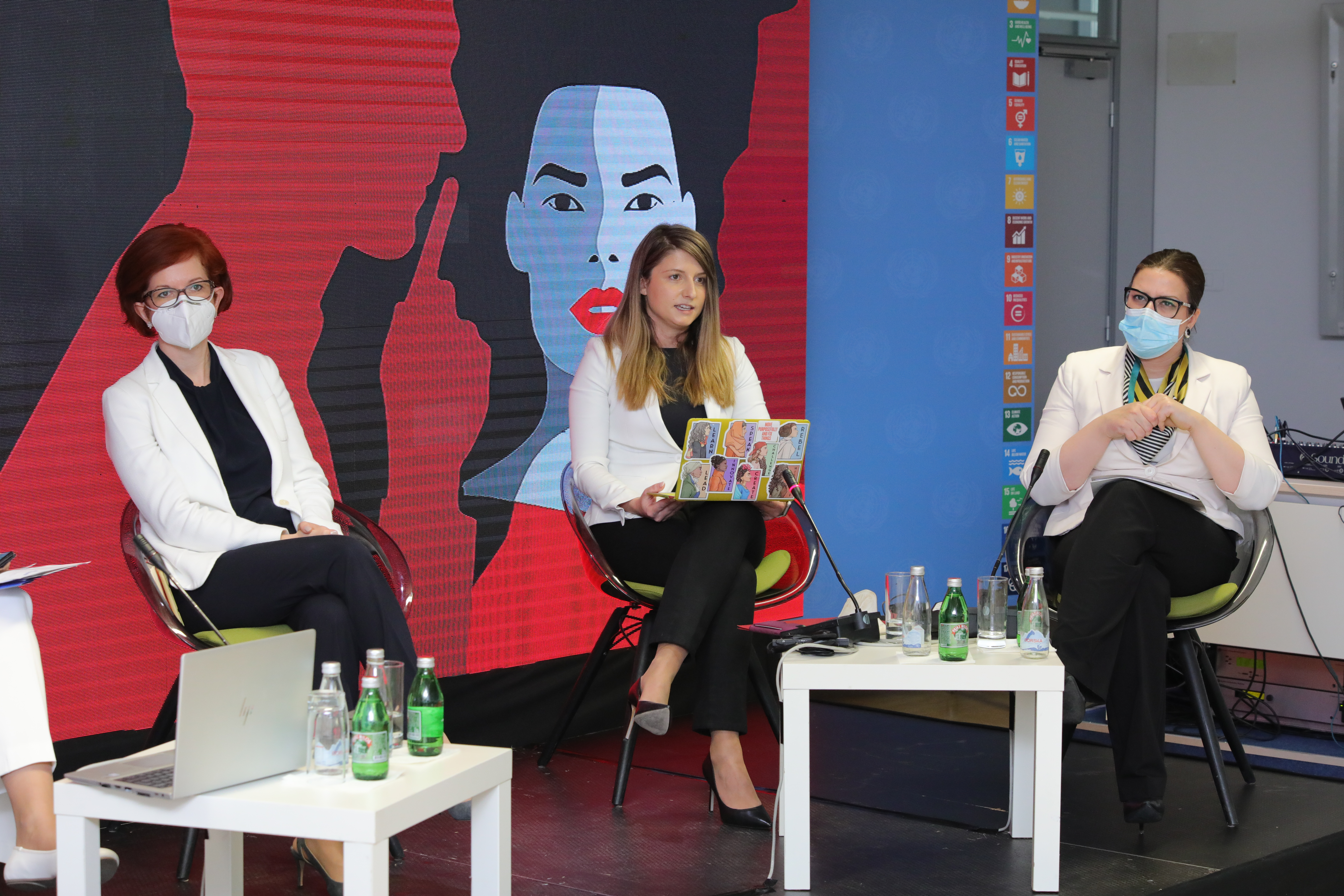Violence against women politicians: Cost of doing politics or unacceptable burden?
April 26, 2021

Women's Political Network, Photo: UNDP
75 years ago, women in Montenegro were allowed to vote for the first time. This was an important milestone for their participation in public life, politics and public affairs in general. Over the past decade, the representation of women in the Parliament of Montenegro increased by 100% - from ten in 2011 to twenty in 2020 – but this only brought Montenegro to the global average of around 23% in terms of proportion of women in the Parliament.
If progress is clear, so is the – conscious or unconscious – resistance to making parity between women and men in politics and decision-making a reality.
Women running for political office often defy social norms and are considered as intruders –
scrutinized, stigmatized, and targeted – not only by their political competitors but sometimes by the media, their communities, or their families.
A troubling rise in violence
“If you show a willingness to be a devoted politician, your colleagues will do everything to prevent you from doing so. When you demonstrate that you are more qualified than your male colleagues, they will try to keep you out from the activities and discredit you until you finally give up”, says a 51-year old female politician from Montenegro.
The latest Study on Violence Against Women in Politics prepared by the Women’s Political Network (WPN) in Montenegro, and numerous testimonials by female politicians reveal that women continue to face prejudice, discrimination, and acts of psychological and even physical violence when they join a field from which they have been traditionally excluded. Nine out of ten women politicians in Montenegro experienced gender-based discrimination, while seven out of ten have experienced violence during their political work. It is safe to assume that, given their relative visibility and exposure, female politicians represent tip of the iceberg of a larger trend of violence against women in public life overall.
We are also witnessing a worrying trend: women are being increasingly antagonized with misogynist and sexist hate speech across public spheres and in the media, especially in social media. The fact that so many of our interactions have moved online during the COVID-19 pandemic has only made this trend more visible.
This phenomenon is not typical to Montenegro, nor is it new. 90 years ago, suffragists globally were ridiculed and even physically attacked for suggesting that their opinions on matters of societal significance were equal to those of men. Posters opposing women’s right to vote very much resembled today’s imagery on social media in their intention to attack, belittle and silence female politicians and women active in public life.
Judged and shamed for their right to choose
Motivations behind misogynist attacks against women in public life are manyfold, with two drivers standing out in particular:
First, the intent is to discourage women from stepping in the public sphere and send a strong negative signal to those who still consider it. The techniques are often the same as the controlling, manipulation, intimidation, and psychological pressures used by perpetrators of domestic violence.
Second, the opposing messages and narratives are deeply rooted in cultural norms and prejudices on the role and place of women in society. Though attitudes about women politicians may have changed marginally over the past few years, social and cultural values in many countries still support perceptions that women are less successful leaders than men.
These latent manifestations of inequality and discrimination are used to control and keep women in subordinate positions in society, denying them hard-won rights to participate in public decision-making.

Presentation of the Study on Violence Against Women in Politics, Photo: UNDP
Coordinated actions
In November 2017, a Women’s Political Network was established in Montenegro to promote equal political and economic rights and to combat gender-based-violence, with funding by the Delegation of the European Union to Montenegro and implemented by UNDP in partnership with the Ministry of Human and Minority Rights.
Since then, women representatives from 18 political parties have already put forward a number of recommendations for Parliament, political parties and media with a view to systematically address violence against women in political and public life. These recommendations call particular attention to reducing gender inequalities in all aspects of professional life.
We are also proud of having advocated in 2011 and 2014 for the introduction of quota for women in electoral legislation and are continuously supporting capacity development and women’s political networking to promote cross-party cooperation and dialogue on the ultimate goals of human development and equality.
As the month of March’s focus on women progress recedes, let us remember that, with many countries’ commitments to gender equality and the Sustainable Development Goal 5 far from being achieved, we need every day to be the International Women’s Day!

 Locations
Locations